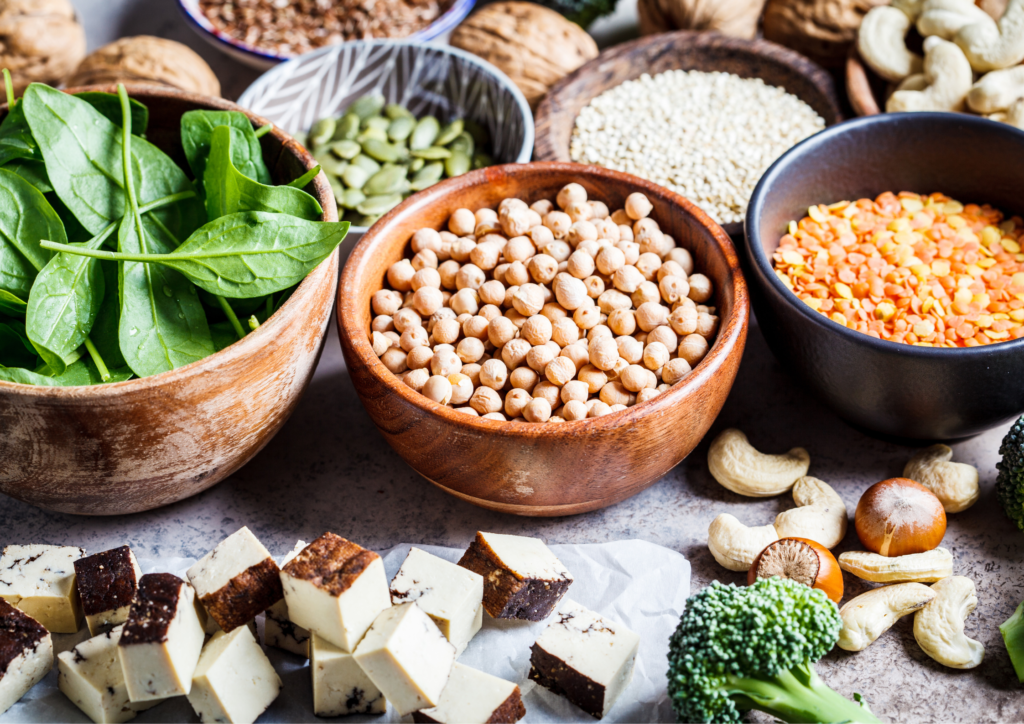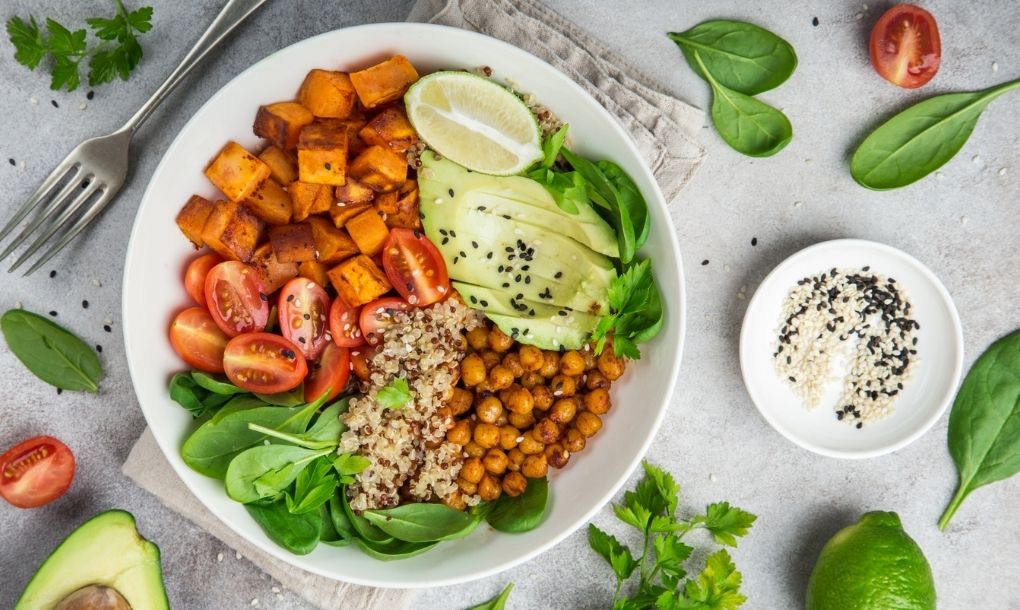Date of the last update: 25.04.2022
Vegetarian diet has recently been on the rise not only for health reasons, but also because of consumer’s increasing awareness. Unethical animals breeding and the waste of land used to grow fodder instead of contributing to reducing world hunger are other main motivators. This is why green solutions, such as organic farming, are becoming an extremely important part of our everyday lives. But this is not enough – hence the growing number of conscious vegetarians and vegans who are choosing to use alternative protein sources.
Table of Contents:
You can read this article in 3 minutes.
Vegetarian diet – protein
Amino acids are an essential part of metabolic processes. Thus, the dispute about protein going on between “carnivores” and vegetarians and vegans has long been revolving around one particular argument. How can you supplement your protein requirements if you don’t eat animal products? The belief in the superiority of animal protein over plant protein originated from a study conducted on rats in 1914. The study concluded that plants do not contain the amino acids necessary for human cells. But today, of course, this argument has lost its relevance, and we know very well that plants also provide us with properly absorbable essential amino acids. And yet, knowledge gained over 100 years ago still persists and many people mistakenly consider plant protein to be incomplete.
Alternative sources of plant protein and more

Plants such as:
- soya,
- beans,
- lentils,
- oats,
- rye,
- pumpkin seeds,
are a staple for vegetarian or vegan diets, as they allow to replenish essential amino acids. However, the future of nutrition may not lie in legumes, but in other organisms which have already become alternative protein sources. This term is used to define sources that have not been intended for humans or animals until now.
Check out also: Keto Diet for Vegetarians – Info, Recipes
Of course, the most common example of an alternative protein source is insects, which have already been eaten by people in some parts of the world. However, they are still not treated as a possible balanced food option, mainly because of cultural differences.
Clearly, insects, regardless of their stage, are still living organisms. Thus, they have no place in a vegetarian diet, let alone a vegan one, even though insect farming would have great advantages from an environmental point of view.
Explore more: Food and mood. How does diet affect our mental health?
Summary
Currently, vegetarians and vegans can benefits most from another alternative protein source. Single-cell organisms such as algae have already been widely used as a dietary supplement, while moulds and yeasts are yet other options. Without doubt, mass production of single-cell organisms would be a major step in the fight against hunger. At present, however, the cost of obtaining microbial proteins is unfortunately too high.
Alternative protein sources could be an ideal solution not only for vegetarians or vegans, but also for all humankind. We are already facing a problem of hunger, which will only increase over time due to climate change.
Sources:
http://zb.eco.pl/zb/209-210/pdf/54-55.pdf
http://sj.wne.sggw.pl/pdf/PRS_2017_T17(32)_n3_s49.pdf

